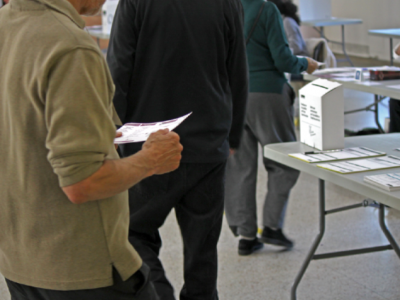Rates of chlamydia, gonorrhea, and syphilis have spiked all across Canada. That includes Prairie Mountain Health, which covers the entire Parkland.
Back in 2014, confirmed cases of chlamydia came in at 600. In 2018, there were 740 confirmed cases of the STI. Confirmed gonorrhea cases also saw a giant spike. There were 70 confirmed cases in 2014, compared to 200 in 2018.
Cases of syphilis were perhaps the most shocking. There were only three confirmed back in 2014. In 2018, that number was 10 times that amount. 30 cases were confirmed in 2018.
"We also think the number is higher in Prairie Mountain Health, but some people don't experience any symptoms so they don't get checked," said Dr. Mahmoud Khodaveisi, Medical Officer of Health with Prairie Mountain Health.
Across Canada back in 2006, there were 69,336 confirmed cases of chlamydia. That jumped to 126,785 in 2017. Confirmed gonorrhea cases also saw a significant spike in the same time period. They went from 11,299 back in 2006 to 28,385 in 2017.
Confirmed syphilis cases jumped to 4,327 from 3,381 over the same period.
When it comes to why confirmed cases are skyrocketing, Khodaveisi knows exactly why.
"Risky sexual behaviour such as sex with anonymous people," he added. "Also unprotected sex, sex with multiple partners and sex under the influence of alcohol and drugs. I think these are the main reasons why we're seeing an increase."
Symptoms:
Chlamydia: Pain or burning while peeing, pain during sex, lower belly pain, abnormal vaginal discharge, bleeding between periods, pus or a watery/milky discharge from the penis, and swollen or tender testicles.
Gonorrhea in men: Greater frequency or urgency of urination, a pus-like discharge (or drip) from the penis (white, yellow, beige, or greenish), swelling or pain in the testicles, and a persistent sore throat.
Gonorrhea in women: Increased vaginal discharge, painful urination, vaginal bleeding between periods, such as after vaginal intercourse, painful intercourse, and abdominal or pelvic pain.
Syphilis: A non-itchy rash that starts on the trunk and spreads to the entire body, including the palms of the hands and soles of the feet, oral, anal, and genital wart-like sores, muscle aches, fever, sore throat, swollen lymph nodes, patchy hair loss, and headaches.
"If you experience any of these symptoms, you should seek medical attention as soon as you can," added Khodaveisi.
To make sure you don't contract any of these STI's, Khodaveisi has some tips.
"Avoid sex with anyone who has genital sore or a rash or any other symptoms," he added. "Avoid alcohol and drug use that may lead to having risky sexual behaviour. Consistently use condoms during sex, that's a big one."
All of chlamydia, gonorrhea, and syphilis are treatable.







